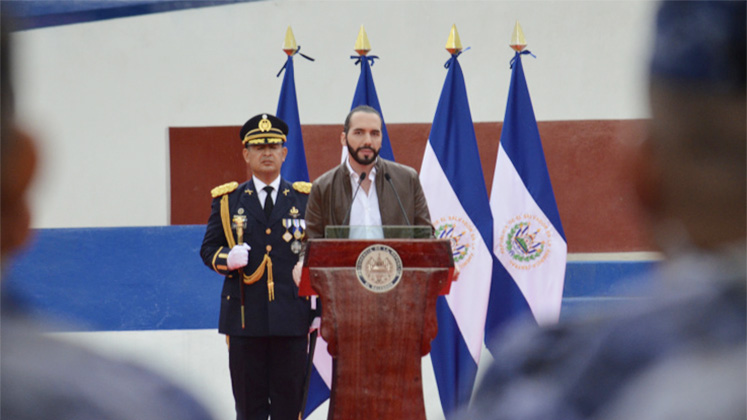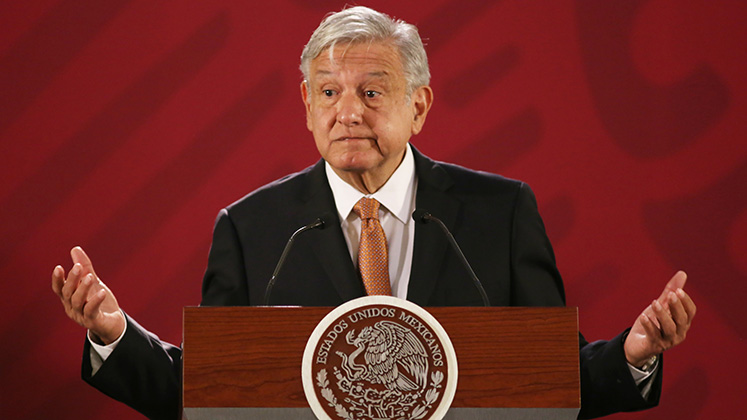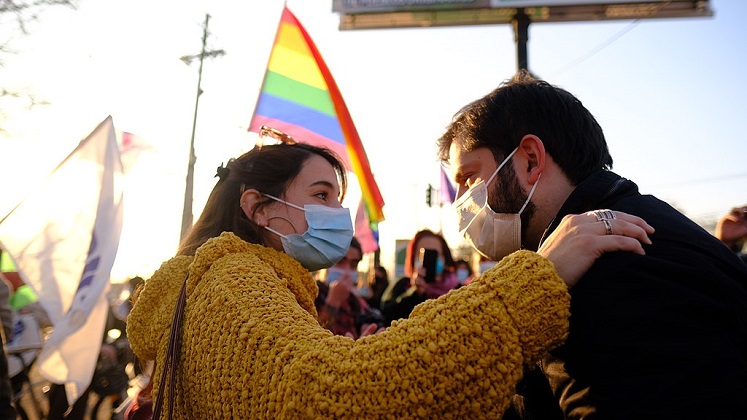While homegrown and much less sophisticated than strategies seen in Brazil, Mexico or Colombia, disinformation spreads rapidly in Costa Rica. But a large number of candidates and much-reduced campaign funding acted against harmful propaganda campaigns in the first round of this election cycle, Simone Bunse (Stockholm International Peace Research Institute) found.
Lee este artículo en español
The manipulation of public opinion via social media is a threat to democracies worldwide. In Costa Rica, Central America’s poster child democracy, political actors have used social media as a strategic platform to launch attacks and spread false information during election campaigns, stir up opposition to government reforms or polarise society since 2018. While homegrown and much less sophisticated than some seen in Brazil, Mexico or Colombia, disinformation strategies in Costa Rica have included spreading fraudulent electoral poll results, attempts to discredit the Supreme Elections Tribunal and inciting violence against Nicaraguan immigrants.
The country’s small size and high use of WhatsApp and social media, combined with weak institutional cybersecurity systems and the public’s low awareness of privacy risks and poor information hygiene, led to predictions of a gradual professionalization of disinformation campaigns ahead of the 2022 elections. But, at least until the first round of the presidential election on February 6, such forecasts have proven premature.
The somewhat chaotic 2022 election landscape in Costa Rica suggests that domestic political actors’ incentives and capacity to engage in organized disinformation campaigns do not only depend on access and know-how of certain technologies. The peculiar and uninspiring line-up of 25 presidential candidates who competed for the attention of over 30% of undecided voters until a week before the first round, and much-reduced campaign financing, acted as an unexpected booster shot against organized social media disinformation in the first round.
Generally, incentives for political actors to pursue organized disinformation campaigns are high (and more likely to have their desired effects) at times of great economic uncertainty, deep socio-economic change, when societies are polarized, identity politics is rampant and trust in institutions low.
In 2018, for example, after the unfortunate and politicized timing of a ruling issued by the Interamerican Court of Human Rights, the issue of same-sex marriage dominated Costa Rica’s election campaign. The opinion that all rights extended to heterosexual couples should be extended to LGTB couples led to heightened aggression in the campaign rhetoric and a highly polarized political debate which eclipsed all discussion of the parties’ manifestos. What’s more, it propelled the country’s evangelical community to electoral prominence. Under the leadership of candidate Fabricio Alvarado, they pursued dubious campaign strategies such as spreading unrepresentative polls and microtargeting campaign messages after the illegal attainment of private data of 2.5 million voters.
Less aggression in the first round
Similar polarisation or sophisticated micro-targeted campaigns have not been a characteristic of the 2022 election, at least until February 6. So, what took the steam out of such online propaganda attempts during the first round of the presidential election campaign? Three factors stand out. First is the dearth of money. Financing national private contractors, strategists, and digital marketing agencies to manage political parties’ online campaign rhetoric is not cheap.
Past scandals revealed that Costa Rican online campaign strategists charge $50,000 monthly. Yet money to pay for election campaigns has become scarce in Costa Rica. The campaign subsidy provided by the State (by far the dominant source of funding for presidential elections) shrunk from over $38 million in 2018 to $30 million in 2022. This is the result of the economy contracting by 4.1% in 2020. Also, this money pot must be shared between an unprecedented high number of presidential candidates. In addition, none enjoys the solid backing of the business community.
In any case, the legal amount of private donations is minimal and foreign contributions are banned. According to data by the Digital Communication Observatory based at ULatina, a local private university, thus far in the campaign, 98% of political advertising spending went to traditional television or radio channels or was invested in posters and press coverage. Only 2% went to digital media, with Facebook being the preferred outlet for political advertising, followed by Instagram and Youtube.
Second, and crucially, no clear polarizing topics have stood out despite the country’s economic disarray with an unemployment rate of 14.4%. The colourful array of opposition parties has been united in their disillusionment with the financial record of eight years of the Citizens’ Action Party (PAC) administration, which brought the country to the brink of a financial crisis. Thus, attacking the government did not distinguish any party from the other. They all called for reducing unprecedented high levels of inequality in a country that has cherished social equality throughout its history.
Immigration from Nicaragua, a polarizing issue in the past, slowed during the Covid-19 pandemic. Hence, it has not been a campaign topic either. Similarly, the anti-vaxxer movement is minute in Costa Rica. Even though erroneous coronavirus information has been rampant, vaccination rates in Costa Rica resemble those of developed countries. And one of the few institutions that Costa Ricans still trust is the country’s universal healthcare system, even if that trust has recently come under stress.
Moreover, after losing the 2018 election, Fabricio Alvarado refrained from stridently playing the values or identity politics card. Equal marriage was legalized in 2020 and abortion has been left out of the campaign topics. Of course, organized social media manipulation could also focus on positive messages to support a particular candidate. But no candidate has put forward a clear and coherent vision for Costa Rica’s way forward. Instead, the 2022 election seems like a vacuum of ideas.
During the first round, candidates have been somewhat reluctant to engage in the no-holds-barred personal attacks campaigns one sees in hyperpolarized election settings such as the US. But more importantly, all candidates seem to have a well-known skeleton in the closet.
Third, during the first round, candidates have been somewhat reluctant to engage in the no-holds-barred personal attacks campaigns one sees in hyperpolarized election settings such as the US. This is unsurprising given the lack of a clear front runner. Perhaps more importantly, all candidates seem to have a well-known skeleton in the closet. National Liberation (PLN) and its standard-bearer, Jose María Figueres, are associated with corruption and cosying up to interest groups. Progress Social Democratic Party (PSD) candidate Rodrigo Chaves – a former World Bank official – left his Washington post after allegations of sexual harassment. And so it continued with other candidates.
During the run-off campaign, and despite the evidence and the report by the World Bank, Chaves has kept denying he was sanctioned by the institution, and his campaign stands out as systematically lying and misinforming about these findings.
While none of this makes Costa Rica immune to the disinformation virus, the election dynamic during the first round clearly shows that neither the use of such strategies nor their effectiveness are a given, even if the technological means are available. The lack of campaign funding, a confusing display of issues unsuitable for polarisation, provided an initial antidote to organized social media manipulation. Unfortunately, this antidote is proving short-lived. Given the zero-sum dynamic of the runoff on April 3 and the nature of the accusations Chaves and Figueres are facing, the unprecedented fierce rhetoric and the intentional spread of lies started the moment it was clear who would proceed to the second round.
Notes:
• The views expressed here are of the authors rather than the Centre or the LSE
• Please read our Comments Policy before commenting
• Banner image: Costa Rica – Puntarenas by Fabio (CC BY-NC-SA 2.0)





